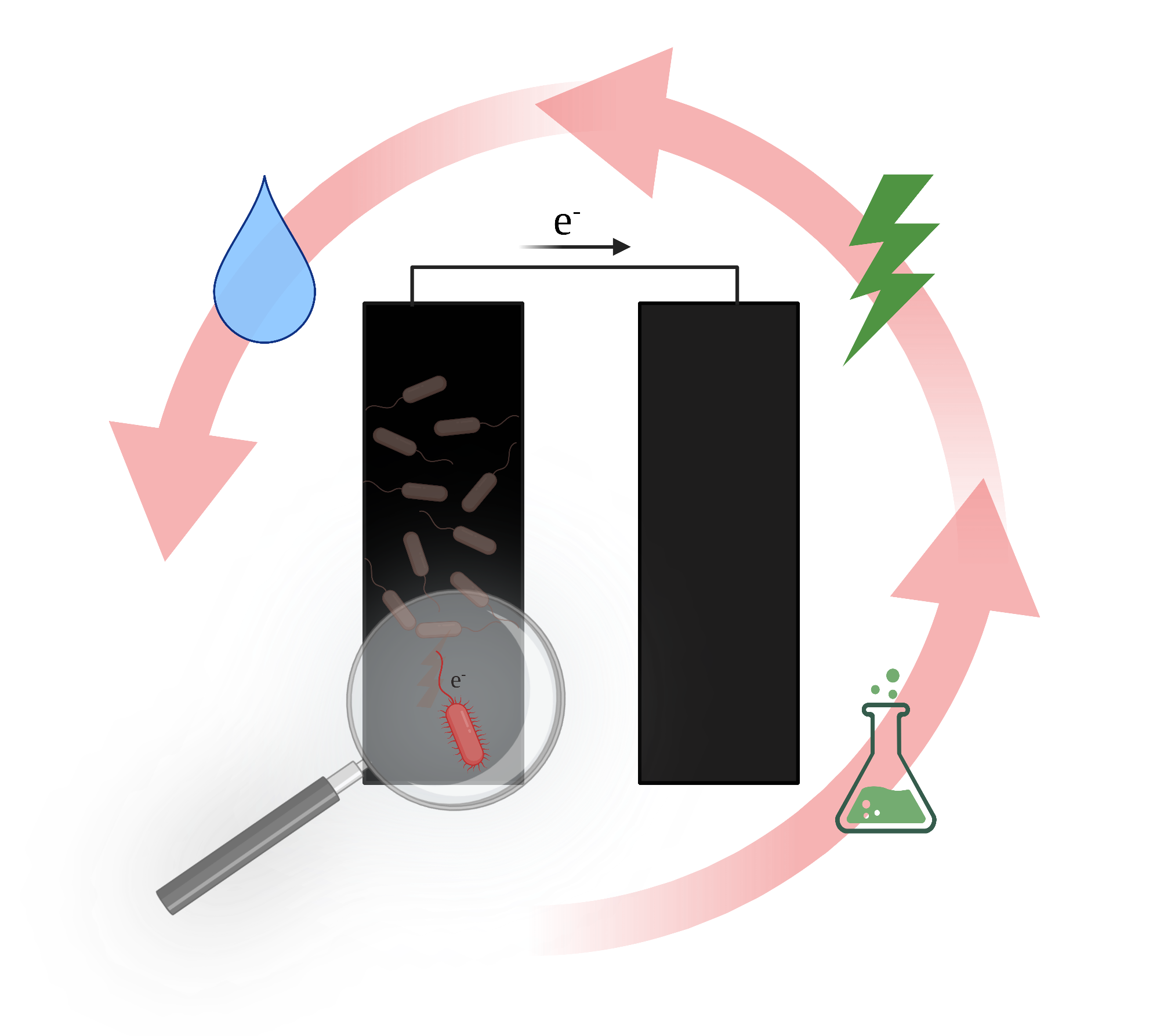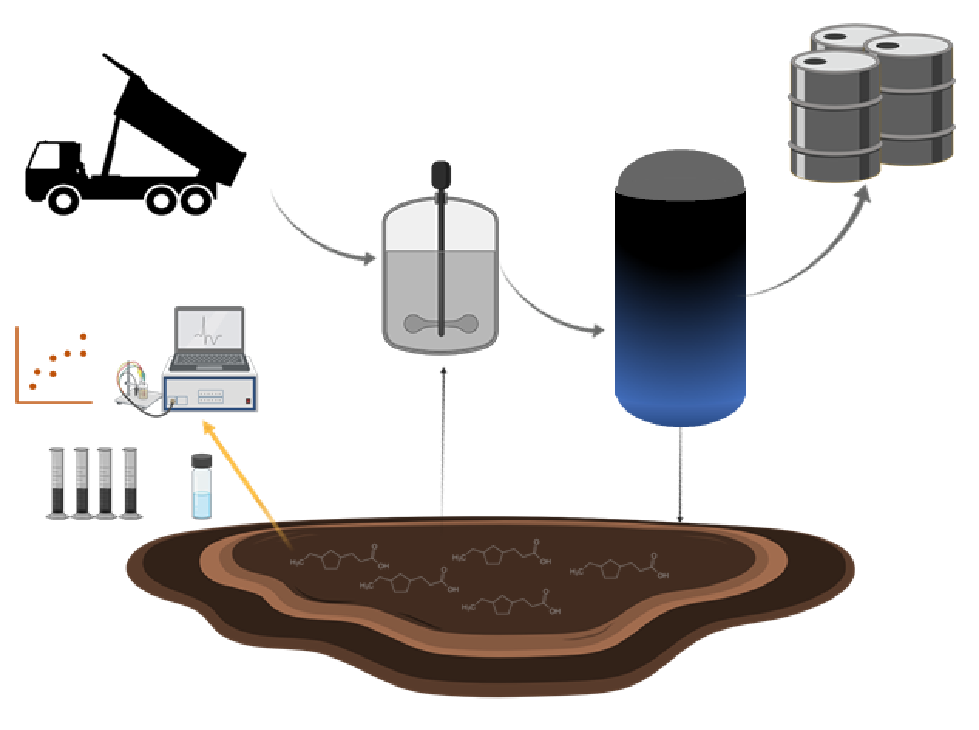Anaerobic Digestion
Anaerobic digestion is a proven technology that can convert organic waste and high-strength wastewater into biomethane. To develop a sustainable and high-rate anaerobic digestion process, we explore different strategies, including pre-treatment of feedstock, electrochemically assisted digestion, co-digestion of complementary waste streams, and promoting direct interspecies electron transfer (DIET), a recently discovered microbial syntrophy in the anaerobic microbiome. Furthermore, our team focuses on understanding the fate and control strategies of emerging contaminants, such as (nano)microplastics and antibiotic resistance genes.
Microbial Electrochemical Technologies
 Microbial electrochemical systems and technologies combine the metabolism of bacteria with electrochemistry to capture electrons from biodegradable organic matters in waste or wastewater. This unique feature allows us to manipulate the recovered electrons into electric power or other value-added products, such as hydrogen gas, methane, industrial chemicals, etc. We are interested in understanding microbial and electrochemical kinetics, microbial syntrophic interactions, and ultimately developing scalable microbial electrochemical systems for field application.
Microbial electrochemical systems and technologies combine the metabolism of bacteria with electrochemistry to capture electrons from biodegradable organic matters in waste or wastewater. This unique feature allows us to manipulate the recovered electrons into electric power or other value-added products, such as hydrogen gas, methane, industrial chemicals, etc. We are interested in understanding microbial and electrochemical kinetics, microbial syntrophic interactions, and ultimately developing scalable microbial electrochemical systems for field application.
Biosensor and Bioremediation Technologies for Oil Sands Industry
Our research team is developing a microbial electrochemical cell-based biosensor for real-time monitoring of organic contaminants in oil sands process water. We are also developing advanced remediation processes for oil sand tailings by combining principles of environmental biotechnology and physicochemical processes.
Illustrations are partially created with BioRender. The cover picture shows a microscopic image of electroactive biofilms grown on carbon fiber electrodes in our lab.


